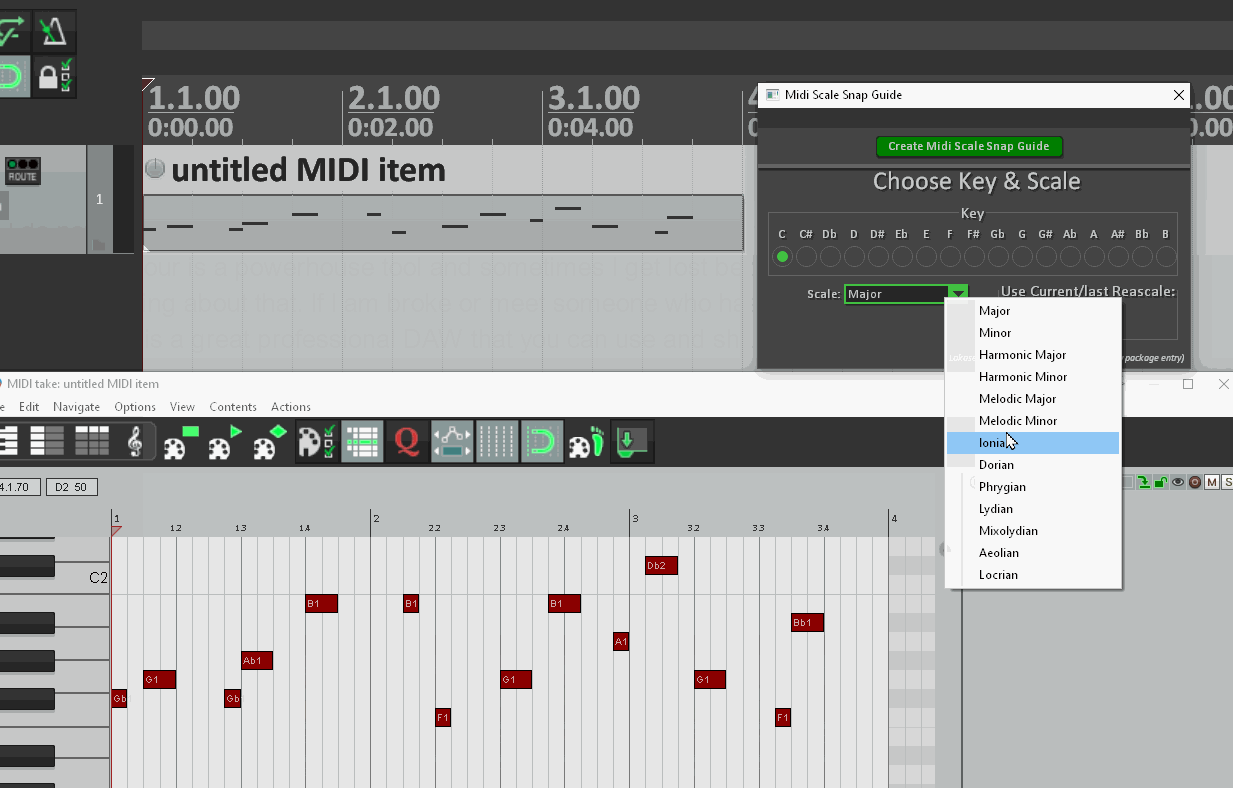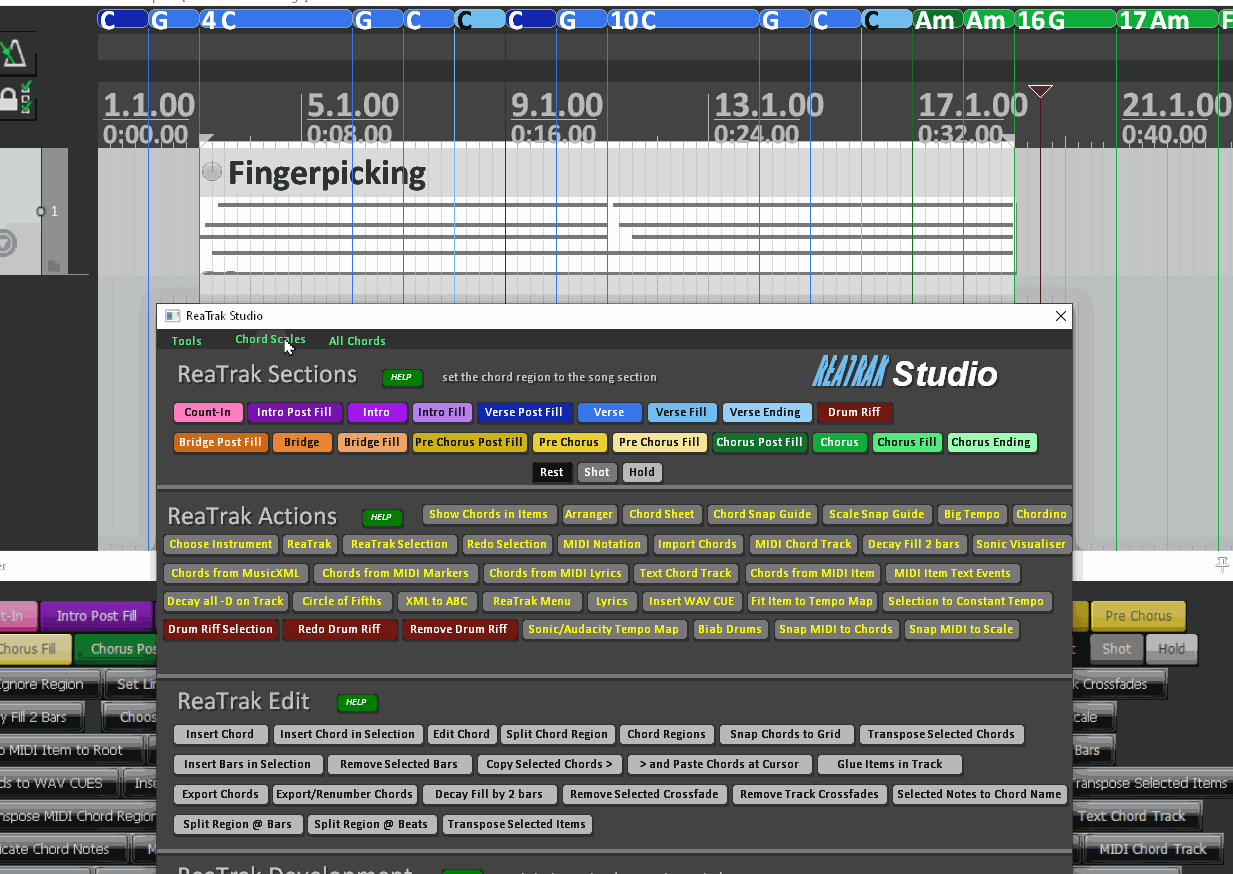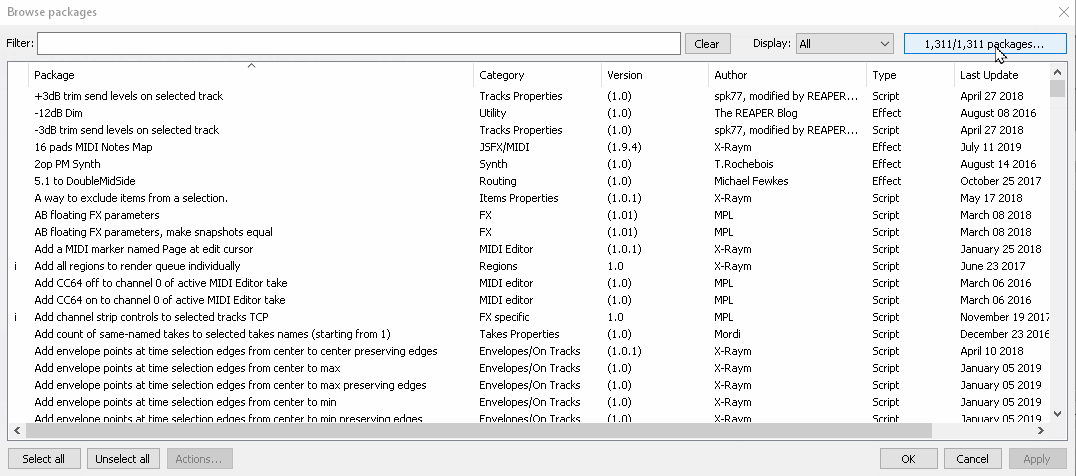“Free software” and “open source” technically mean the same set of rules applied to code. What do you mean by “although not necessarily free software”? It is necessarily free software, as long as it’s open-source.
The fact that you can read the “source” of a script does not give you the “Four Freedoms” described by Stallman. In particular, you may not have the right to distribute it.
There are already enough proprietary DAW’s out there, with more being added almost every year. For what ever reason, we cannot have enough DAW’s in the market and developers like the idea of making one. But there are not many good Libre DAWs out there. Not like Ardour. While Reaper (I cannot afford Reaper 6 right now) is low cost proprietary DAW and I do use it sometimes for specific tasks, Ardour is preferred. I am an Ardour subscriber under the ‘Developing World Subscription’ model. My life has more famine than feast days and I know which ever it is, I will always be able to use Ardour as long as I have a computer and a sound monitoring system. Most DAW’s go the subscription model route and if one month I do not have the fees, then I am not working. With Ardour, this is not a concern. The biggest concern is that Ardour is a powerhouse tool and sometimes I get lost because it is so powerful. There is something reassuring about that. If I am broke or meet someone who has audio aspirations but limited means; ‘hey, there is a great professional DAW that you can use and share with other audio enthusiasts’.
Ardour devs are the Prometheus for 'the rest of us, the ‘Precariat’. A Libre DAW is not what users want, it is what they (and I) NEED.
One thing to keep in mind, In Umberto Eco’s essay, Incontro, he writes about knowledge stored in dated computer languages and as the language dies, so does the knowledge. So someone makes the choice of what knowledge is allowed to live and what fades. How much more complicated when dealing with proprietary barriers? Under the Libre model, a lot more can be preserved.
Yes I’d agree. I took a look at Blender about a year ago and I was hugely impressed by how simple it is to build. It’s a massively complicated product. Perhaps even more so than Ardour - and just as reliant on 3rd party libraries - yet the Blender build tool did everything for me. It even checked to see if I already had the library dependencies - and if I didn’t, it downloaded them and built them without me needing to figure it all out for myself. If Ardour needs to attract more developers, it could learn a lot from Blender.
With Ardour, the audience is people who want to make music, obviously. From my perspective, I’d be tempted to have a go with Lua to get something I want - e.g., a bounce Midi to Audio feature (or is there a script already  ). But I’m very unlikely to invest the time required to learn enough to dabble in the source code itself.
). But I’m very unlikely to invest the time required to learn enough to dabble in the source code itself.
I speak as someone with 30+ years of IT and programming experience in multiple languages (favourite so far has been Lisp). It’s too big a barrier to what I want to do - make music. That’s not to say I’d never do it - but time constraints leave it way down my list of things to think about.
Contrary to that, in other Open Source projects I’d be tempted to make changes to things I use everyday where I’m already current and proficient in the techonologies used - e.g. a Python ‘thing’ - I’m already set up for that sort of development, so the barrier is low - to me.
I don’t see the Open Source aspect as a diversion, but for 99.99% of users source-code changes are not a viable option for them to enhance Ardour. I’m grateful there’s a middle ground in Lua scripting, I think building on it represents the best path to opening further possibilities.
I also want to add I’ve been using it for many years now, for composing with Midi, and while I’ve looked at other options I still prefer Ardour (and Mixbus). Thank you for your continued development efforts!
The fact that you can read the “source” of a script does not make it open-source. https://opensource.org/osd-annotated
What you are talking about is not open source by any stretch of the imagination.
Blender doesn’t distribute a 3rd party GUI toolkit with their binaries and doesn’t patch the libraries they use in ways that will not be accepted upstream.
I would remind folks that on Linux (Debian at least) to set up a machine to build ardour is (the equivalent of):
apt-get build-dep ardour
I checked Blender. Because they do not use a 3rd party GUI toolkit, their list of 3rd party dependencies is much smaller than Ardour’s. And in particular, because they do not use GTK+, their list of dependencies is much smaller than Ardour’s. They also rely on several libraries that we build and include to instead be available (at least on Linux). On Windows and macOS they appear to rely on the developer downloading pre-built versions of the 3rd party dependencies.
Was it a mistake to use GTK+ for the GUI of Ardour? Almost certainly yes, all things considered. But only with all things considered, because it did give us cross-platform compatibility long before anything better came along. It also saved myself and other early developers from having to implement a toolkit from scratch - even today, we are still reliant on GTK+ for 3 major toolkit components: a file selector (on Linux, at least), text input (massively more complex than any less experienced programmer might expect) and treeviews. Reimplementing these three is a huge task.
Another thing I wanted to say about Blender as a model, since it has accompanied Ardour on its own variant of an “open source journey” for much of the last 20 years (despite starting out as a proprietary application). For every user of a DAW, there are 10 users of a tool like Blender. For every attendee at a “audio on computers” workshop, there are 10 at the corresponding “graphics on computers”. I don’t know why, precisely. It’s just a fact. It’s the sort of fact that helped convince both the EU and Apple to give early, massive financial support to Blender after it was open sourced, in a way that has never has happened in the computer audio realm (I am guessing that the “healthy competitive environment” and comparatively low cost for DAWs has something to do with that.
This massive ratio of user base sizes creates very different implications for the two programs. I would not say that Ardour (as code, as a project, as a community) has nothing to learn from Blender - there’s a lot. But there are things that work for Blender that are just never going to work in an Ardour context, or in the context of any libre DAW.
Sorry guys, all I was suggesting was to add some Lua GUI elements in the scripting for end users that just want to make music. Open Source is good but I’m not a Linux user with C++ know how and since you released a Windows version it is now around 50% of users. Like mentioned, if the user script is good then it can be hardwired in by a Linux user with enthusiasm and C++ know how.
I have made Reaper scripts that are now hardwired into Reaper.
With the Lua scripting you have and all those bindings there so there is massive potential.
I came here and it was like a parallel universe you have Paul & Robin like you have Justin & John over at Reaper, though you guys engage more, thanks !
Here are 2 Reaper Lua script GUI’s thanks to Lokasenna’s GUI :
No need to apologize, it spurns conversation and no matter what happens the discussion can be good to turn up new ideas and ways of thinking. I personally find this a great conversation to have honestly.
SeabladeI am no coder, but for me the most important aspect of Ardour being completely open-source is the future of my own projects. It’s the thing not many think of. A couple of years ago I had to work on a reissue of my own early recordings, made 10+ years ago in Cakewalk Sonar with all those numerous commercial plugins, all of them requiring some form of Internet activation. It turned out to be a barely possible task. I managed to partially re-create my old workstation, I had installed and activated Sonar (thankfully it was an old DVD version), but I was only partially successful with the plugins and in the end had to recreate many effects in Ardour with open-source plugins by ear.
And now, imagine 50 years have passed and someone wants to load your old projects. The original projects, not a bunch of mixdown tracks. For example, because now there are new AI ways to reduce noise or restore lost frequencies in the source tracks. When restoring original, unprocessed audio the resulting quality is always incomparably higher than when working on the mixdowns. And with all the software source code available I think it will be quite possible to do it all, and even without a need for virtual machine.
I think the libre ideology has even more consequences than it is generally understood. It contains in itself the right to actually own your data, so it’s not only for the developers but for the users as well. It is just something which reveals it’s true value in the long-term perspective.
To clarify: this is on the mid/long-term ToDo list. For various reasons discussed here it’s not a high-priority item, but perhaps it should be?!
You do have convincing arguments to prioritize making it easier to extend Ardour. There’s still a big unknown how many script-writers will make use of it and what’s needed to reach critical mass to make it worth the while.
GUI elements are only one part, we’ll also need some ecosystem to make it easy to share/install scripts (maybe a web-service, git-based,…)
Just to add my two cents - the issue for a lot of people isn’t necessarily an inability to build the software and its dependencies, but rather a complete unfamiliarity with C++. Hell, even Rust would be within my grasp, but the added complexity of writing and building C++ is a major headache.
I’ve been increasingly frustrated with Reaper’s development - long-standing bugs, straightforward feature requests being completely ignored, etc. Ardour seems like a great alternative but the lack of UI scripting is, IMO, a significant blocker.
@Efenstor 's point is along the lines of what I wanted to say the day this post went up. I also do not know C++ and I’m too old and bogged-down in the rat race of life to devote the time to it. I will never edit and recompile Ardour’s source code. With that said, the nature of this project is still immensely important to me. The work you guys put into this software is unbelievable. For the last few months, I’ve actually been on Mixbus but I still donate to Ardour every month because I think this software is valuable to the community. People need this. They need an affordable DAW, that is in most respects as powerful as the industry standards, and one where we actually own our own data. I have never scripted in Ardour or any other DAW, I keep things pretty simple when recording, but I can’t imagine this is enough of an issue to warrant a fundamental change in the software. As much as I respect @MusoCity 's taking the time to suggest a new feature, I don’t feel like there’s a lot of us looking for this, and even then, there is probably less than 100% of those people who will actually take the time to learn Lua or whatever markup language to actually take advantage of it. If it can be done eventually, great. Options aren’t bad. But not at the cost of making the software less open and certainly not at the expense of the MIDI features and clock improvements that you guys are working on. It seems to me, if you prefer Blender, use Blender. And I’m not saying that to sound rude. Honestly. This is why we have software options. If the two did all the same things in the same ways, one would be unnecessary.
Blender isn’t a DAW. I think the comparison was for a different reason.
IMO Louigi Verona is methodically wrong in so many ways. but it would be out of scope to develop a criticism of his text here, and of course there are valid points and it is good to think and talk about the future of development open source / software libre here.
As an “acoustic” musician preferring real instruments to synth plugins I have never ever used any scripting in my entire life, only some automation, and I think this is the way most of musicians use sequencers. I may be wrong.
The most important consideration pro open-source is this: any data has no value without a program they are intended for. If you do not completely own the program, which is possible only if you have its sources, you effectively do not own your data. The biggest evil are closed-source data formats, of course, but closed-source software comes second, as only when all the links in the data-production chain are human-comprehensible the final result can be precisely recreated, and only that means you actually own the production data.
P.S.: Sorry, I’m not too good at explaining my logic, I am no English native-speaker.



